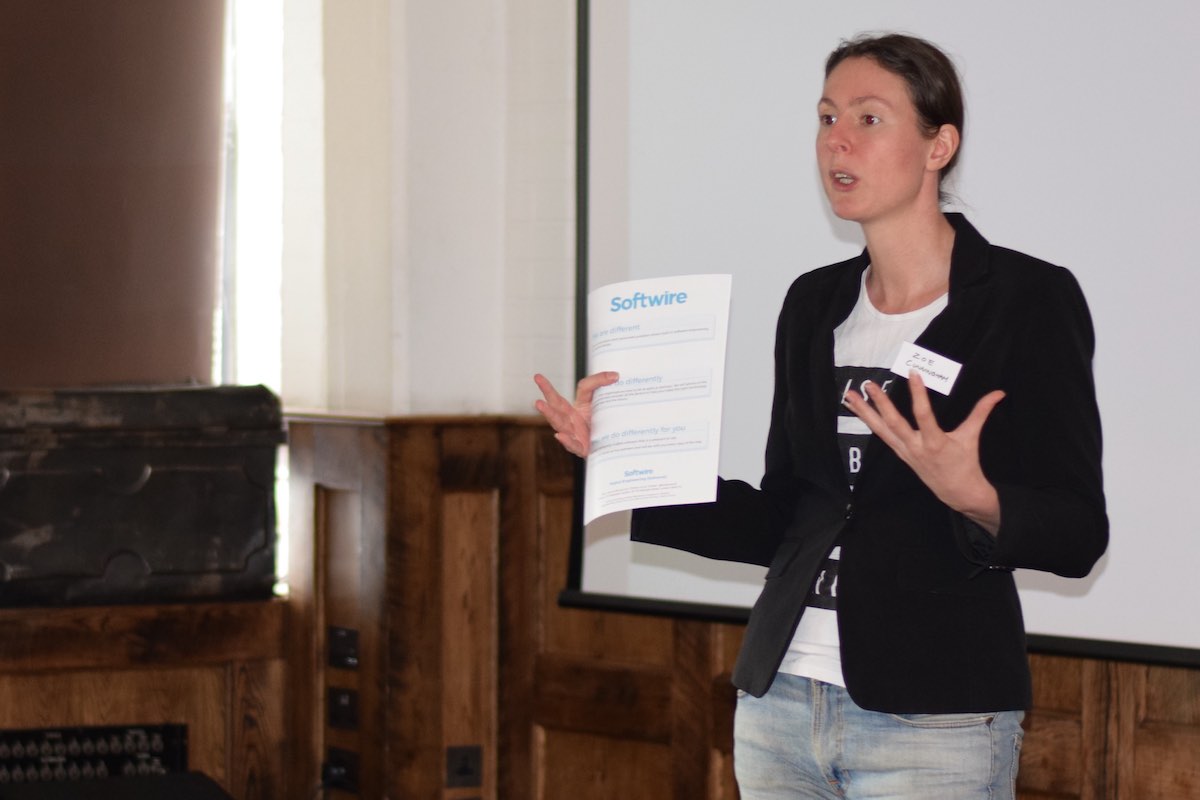Digital Readiness
Article
Successful business process outsourcing comes down to asking the right questions

Whilst it can be tempting go all in on business process outsourcing to keep internal costs down, decision makers need to think about where knowledge gaps exist and how the situation might change as a company expands.
For Dave Walker, director of technology at storage specialists Lovespace, outsourcing should never be used as a way to blindly hand ownership of a problem to someone else. He recalled a time he worked for a larger company than his current business, and senior management wanted to outsource a major IT project. “It was the usual catalogue of problems where they wanted something solved, didn’t really know how to do it and the solution was to basically lob a grenade over the fence of outsourcing,” Walked explained.
When this happens, everything that follows is often a disaster. “A sales team somewhere out in the wilderness picks up the grenade and throws it to their engineers to try and solve,” added Walker, “but because there’s not enough communication, not enough internal ownership of the problem, six months or three years later the ‘solution’ comes back and it’s not what was asked for – plus it highlights that what was asked for wasn’t the right thing anyway. Outsourcing should be a relationship and not just a way of handing risk over to someone else.”
The experts can often do it better
As is the case with many new businesses, when Lovespace started out six years ago its natural inclination was to “own” everything. Older and wiser, the company now outsources a number of tasks, from marketing to customer service – and the organisation is very strategic about it.
“Originally, we built our own customer management system and very quickly realised that there were multi-billion dollar businesses out there who were dedicated to making and supporting a CMS better than we ever could,” said Walker. Lovespace chose Zendesk for its customer service needs. For IT infrastructure and hosting, it selected a company named Cogeco Peer 1 – “a very good, professional company who try and engage as much as possible with the client, especially at the start when they need to know what’s needed,” according to Walker.
For Barnaby Lashbrooke, founder of virtual assistant company Time Etc, business process outsourcing serves a multitude of his needs – hiring is something only ever undertaken as a last resort. “When I started in 2007, I wanted to make outsourcing admin tasks easier for startups,” he said. “By paying for the time of virtual PAs by the hour, entrepreneurs could free up their own time without the risk or cost of hiring. It’s important we practice what we preach, but it’s also common sense, as outsourcing keeps us focused on growth, not distracted by hiring.”

As with most businesses, there are certain things that Lashbrooke chooses not to outsource – he likes to keep the customer experience in-house, for example, and tech development is something looked after by his own team. “Technology businesses like ours should have the expertise to develop in-house, or you can run into problems later on,” said Lashbrooke. “Also, I have a tech background so I was able to design and build our platform.”
Expanding on why customer service has not been outsourced, Lashbrooke said he discovered that Time Etc’s customers like to work with one virtual assistant with whom they can build an ongoing relationship, and that if his customer service team picks up the phone to have a chat with a user or to troubleshoot an issue, then customers like that, too.
For a business that promotes virtual working, he said, it was admittedly strange to settle on a more traditional form of customer service. “But the human touch, and investing in relationship building, has made a huge difference to our customer retention,” he said.
Part-time workers can be costly
The case for business process outsourcing can certainly be compelling, however, and Lashbrooke feels that smaller businesses often won’t have enough work to warrant taking on a full-time employee. He pointed out that a part-time worker based in the office may need many of the same things that a full-time person does, such as desk space and benefits. “It makes financial sense to outsource until you can’t do so any longer,” he suggested. “There are also plenty of instances where outsourcing to a professional or specialist, such as an accountant, employment lawyer or HR expert, is the only sensible option. Don’t let the perceived hassle of having to explain or train people put you off delegating work.” It is essential, he said, for owners to “free themselves up” to focus on growth.
For outsourcing to go well, Zoe Cunningham, MD of software development specialists Softwire, agrees that business owners need to know exactly where their knowledge gaps are, and to establish strong links with experts so that these can be filled. “We currently outsource a few things that are not in our key area of competence, such as ISO 9000 accreditation, accountancy and pension provision,” she said. “In each case we work with a company that specialises in that area – we look for businesses that enjoy delivering a great result and getting clients what they need.”

Finding the right partner, therefore, is crucial. “Outsource providers will often just say yes to everything in the brief in order to win the work,” said Cunningham, “but organisations should try to be wary of any professional services partner that offers a blanket yes response.” Not all projects are viable, she insisted, and not all requests make sense.
“Companies that say yes to whatever the customer demands could be doing more harm than good,” added Cunningham – although she does feel that once you have faith in the company you are outsourcing to, it’s OK to be guided by them. “If you’re calling in the experts, then let them help lead you in the right direction and deliver the results you’re looking for,” she said. “Be clear on what your end goal is, and let them do the heavy lifting for you of working out how to get there.”
Success for every task
Importantly, Cunningham feels that taking the decision to outsource can be a valuable way for a business to pause and think long and hard about what success would look like for any given task. “Too often internal projects are not clearly briefed because everyone is expected to be on the same page,” she said. “Working with an external agency means that success criteria and ways of working need to be discussed, and often documented.”
One final point: to find the right outsource provider, Dave Walker at Lovespace believes the best way to do so is through a personal recommendation. Some firms are great, he pointed out, at selling themselves, but actually have little substance behind the sales patter. “I would always prefer to buy a service that I know someone else has had a good experience with,” he said.
Discover why Andrew Peters from Siemens believes digitally simulating your business can transform productivity.